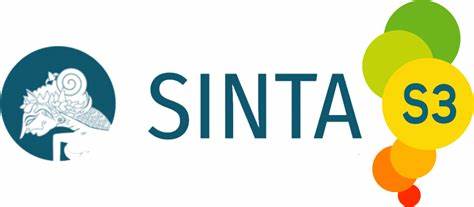TEACHER’S AWARENESS IN DEVELOPING PRAGMATIC COMPETENCE OF EFL LEARNERS
DOI:
https://doi.org/10.22460/eltin.v1i1.p%25pAbstract
This study intends to portray whether or not the teacher is developing learners’
pragmatic competence in the teaching of English at the tenth grade of a senior
high school in southern Bandung. This study is descriptive in nature guided by
two research questions covering: 1) What method is used by the teacher in the
teaching of English?, and 2) Does the method indicate the teacher’s awareness
in developing learners’ pragmatic competence? The data for this study were
compiled through classroom observation. The study found out that the
language-centered method used by the teacher does not indicate the teacher’s
awareness in developing learners’ pragmatic competence, since such a method
only focuses on linguistic forms or grammatical structures. This method seeks
to provide opportunities for learners to practice pre-selected, pre-sequenced
linguistic structure through form-focused exercises in class. This study
concludes that the teacher’s activities are not aimed at raising students’
pragmatic competence or offering opportunities for communicative practice.
She does not have any effort to equip her students with the necessary knowledge
to enable them to use the target language appropriately. Thus, the teacher tends
to be unaware of developing learners’ pragmatic competence in the teaching of
English.
KEYWORDS: awareness, teaching, pragmatic competence
References
Amaya, L. Fernandez. 2008. Teaching Culture: Is It Possible to Avoid Pragmatic Faailure.Revista Alicantina de Estudios Ingleses 21, 11-24
Brock, Mark.N. and Nagasaka, Yoshie. 2005. Teaching Pragmatics in the EFL Classroom? Sure You Can! TESL Reporter 38, 1, pp. 17-26.
Farahian, Majid et al. 2012. Does Direct Instruction Develop Pragmatic Competence?Teaching Refusals to EFL Learners of English. Journal of Language Teaching and Research. Volume 3 No 4, pp. 814-821.
Fraser, Bruce. 2010. Pragmatic competence: The Case of Hedging: Emerald Group Publishing Limited
Grossi, Victoria. 2009. Teaching Pragmatic Competence: Compliments and Compliment Responses in the ESL Classroom. Volume 24 No 2. Macquarie University
Ishihara, Noriko. 2011. Co-Constructing Pragmatic Awareness: Instructional Pragmatics in EFL Teacher Development in Japan. Volume 15, No 2. Columbia University Teachers College Tokyo, Japan
Kulka, B. Shoshana. 1989. Cross-Cultural Pragmatics: Request and Apologies. USA: Abica Publishing Corporation
Kumaravadivelu. 2008. Understanding Language Teaching from Method to Postmethod. New Jersey: Lawrence Erlbaum Associates, Inc.
Lie, A. 2007. Education Policy and EFL Curriculum in Indonesia: Between the Commitment to Competence and the Quest for Higher Test Scores. Teflin Journal Volume 18 Number 1
Merriam, S. 1988. Qualitative Research and Case Study Application in Education. San Fransisco: Jossey-Bass Publishers
Ming, Yan Li and Yan, Zhuang. 2010. Reflection on the nature of pragmatic failure. Volume 8, No.1 (Serial No.76) US-China Foreign Language, ISSN 1539-8080,USA
Rasekh, Z. Eslami. 2005. Raising the Pragmatic Awareness of Language Learners. ELT Journal Volume 59/3.
Soler, E. Alcon and Flor, A. Martinez. 2008. Investigating Pragmatics in Foreign Language Learning, Teaching and Testing: Great Britain: Cromwell Press Ltd.
Trochim, William. M.K. 2001. The Research Methods Knowledge Base. Cincinnati: Atomic Dog Publishing





